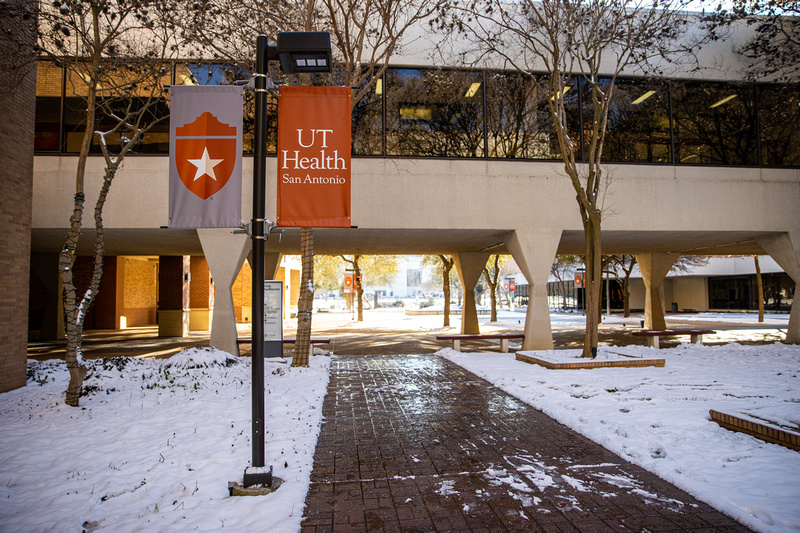As mission-critical staff, the Lab Animal Resources (LAR) team attend to the needs of the university’s lab animals seven days a week, come pandemic or snow storms.
When the weather turned dangerous on Feb. 15, Sander Hacker, VMD, DACLAM, director of Lab Animal Resources, and Jack Simons, MS, LATg, CMAR, associate director of Animal Services and Facilities, took action to assess their team’s situation and keep researcher’s informed.
Crews were in place at each campus, braving the roads to and from the university every day to take care ofthe multitude of research animals and keep tabs on the home front, Dr. Hacker said.
“They’re the hometown heroes once again,” he said.
Though not mandatory given the dangerous driving conditions, about 90% of the LAR staff still opted to come in each day.
“It was a tremendous effort. They weren’t forced to do that, but they knew they had to get the job done,” said Simons of his team, noting the importance of LAR to not only take care of the animals, but to protect the university’s research.
“The researchers need to know that LAR is on the job. They put their grant money and heart and soul into their research, so they want to know it’s going to be there when they get back,” Simons said.
Simons said he also felt indebted to other essential staff members that week. Both the Housekeeping and Facilities and Maintenance staff worked closely with LAR when weather-related damage threatened the animal rooms. Frigid temperatures caused a pipe to burst on the morning of Feb. 15, and water poured in from the ceiling into a rodent housing room and a procedure area. In a coordinated effort, LAR staff, Housekeeping and Facilities immediately responded to transfer all the animals into new housing, stop the leak and clean and dry the affected areas.
“We couldn’t have done it without them. They were really looking out for us,” Simons said.
Simons himself spent four nights in the LAR conference room, trekking to and from his home in the afternoons to check on his family. He recalled his camping trip that had just been cancelled the weekend before joking, “I got to camp out at work instead.”
Other LAR staff also spent nights on campus, including Katie Strychalski, lead animal care technician who stayed over for three nights at work. Strychalski lives in the country outside of city limits, and her home lost both power and water. Being essential personnel, she knew the safest decision was for her and her family to stay on campus throughout the inclement weather so she could perform her essential duties each day.
“It was weird staying here,” Strychalski said. “But I felt very fortunate and blessed to have a place to stay and to bring my family to get out of the frigid temperatures.”
For Strychalski, it was crucial to come in so she could relieve other staff and keep her highly trained eyes on the research animals.
“It’s our job to care about their wellbeing. They can’t tell us if they are hurting or don’t feel good,” she said. “They are doing us all a service by being in our studies, so we owe it to them to provide service back to them, even in crazy weather.”


